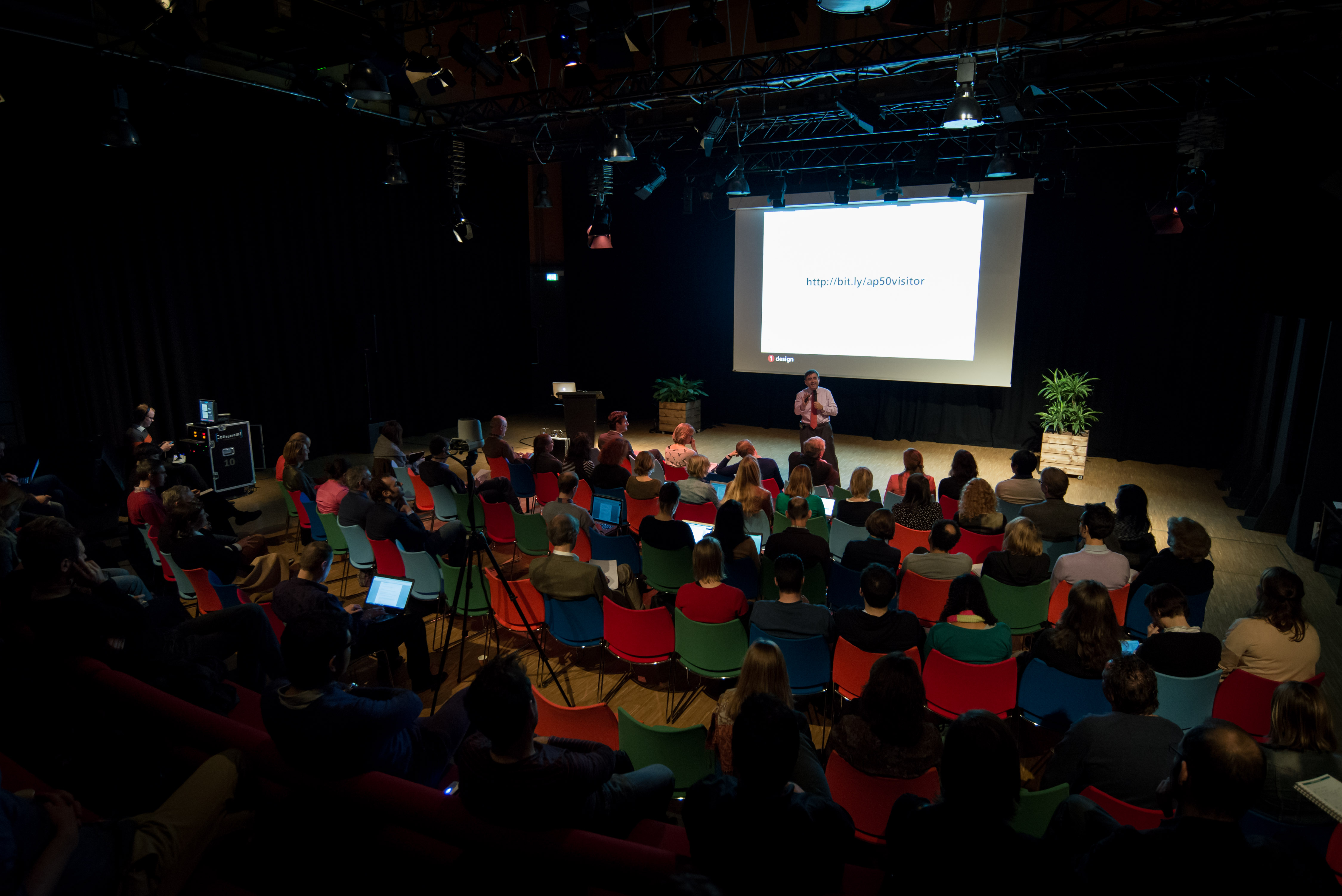How do we reform our methods of teaching to prepare students for the rest of their professional lives? Eric Mazur spent a great deal of his career perfecting the answer to this question. On November 24, the Leiden-Delft-Erasmus Centre for Education and Learning hosted its third Innovation Room, and invited the Harvard professor and physicist to shed his light on the matter.
Rethinking learning
"We're all born scientists", Mazur believes. "Every child is curious and wants to find out how the world works. If anything, education turns off that intrinsic desire to learn." Forget about lectures and exams, he says. Instead, consider team based learning and a project based approach to give students ownership of learning.
To achieve this, the design and approach of a course is of great significance:
- Set clear learning goals by applying backwards design: first determine the desired outcomes, then decide on acceptable evidence to support the desired outcomes, and lastly determine an instructional approach to achieve the desired outcomes.
- Set course goals with a focus on skills, not content. For example: self-directed learning, content mastery, team work and professionalism.
- Most classrooms are shaped like an amphitheatre, which makes them faculty-centered. However, the architecture of classrooms should encourage interaction between students. For example: by including round tables and mobile whiteboards;
- A course should consist of three major components: information transfer (out of class), projects and in-class activities.

Perusall: social learning platform
In order to transfer information outside of the classroom effectively, Mazur has developed Perusall, a social learning platform that stimulates students to read the subscribed course literature.
- Students are instructed to annotate and discuss the course material via Perusall. Their comments, questions and critiques are assessed by quality, quantity, timeliness and distribution throughout the text.
- The assessment is fully automated, so the professor doesn't have to read the annotations.
- The professor has access to a gradebook, in which the assessment is recorded per student.
- The professor gets a 'confusion report', showing which parts of the reading materials students have most trouble understanding.
- To get de students to participate, Perusall uses a combination of intrinsic (social interaction) and extrinsic (assessment) motivation drivers.
A background article has been written by Evelyn van de Veen on the way Perusall works.
The problem with assessment
Typically, assessment is focused on ranking and classifying students, not on 21st century skills. This way, students aren't focused on learning, but just passing the test or the course.
Several problems arise:
- Inauthentic tests: testing the facts instead of actual problem solving. According to Mazur, the student is merely expected to memorize the course materials and regurgitate it during the test. "A computer can do this!"
- When solving a problem, making mistakes is inevitable. However, when students make mistakes on their test, they get a lower grade. This is why Mazur is confident that grading is incompatible with real problem solving.
- During tests, students are cut off from other people and sources of information. This is in sharp contrast with real life situations, in which Google, books and the help of colleagues can be used.
- High stakes exams call for cramming a few days in advance of a test, which means information is only stored in the short-term memory.

Three improvements
Mazur suggested three improvements to reform assessment:
- Assessment should mimic real life. For example: allowing open book exams. In real life students have access to books and the internet, so why not during examination? Of course, "if the answer can be Googled, the test is not authentic."
- Objective ranking is a myth, so focus on providing useful feedback to students, instead of ranking them.
- Focus on skills, not content. Making students simply memorize facts is of little use in the workplace. Instead, they should be taught skills like self-assessment, working in a team and problem solving.
Eric Mazur concluded his key-note speech with an powerful call to action:
We must rethink assessment. If we fail, we will continue to educate the followers of yesterday instead of the leaders of tomorrow."
This is an article by Jelena Barisic
Willemijn Lambert from Creative Natives captured the sessions in a visual way, her Graphic Recordings can be downloaded below.
